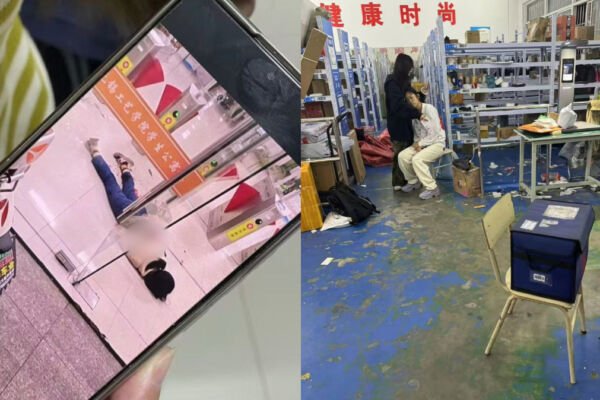In the past week, indiscriminate knife attacks have occurred consecutively in Zhuhai and Wuxi, resulting in heavy casualties and shocking the Chinese society. Several scholars have penned articles urging the government to reflect on society’s stressors, but their writings have been censored by authorities.
Last Saturday (November 16), a knife attack took place at Wuxi Institute of Arts and Technology in Yixing City, Jiangsu Province, leading to 8 deaths and 17 injuries. The suspect, 21-year-old Xu, reportedly carried out the attack due to dissatisfaction over failing exams, not receiving his certificate, and being unhappy with his internship compensation.
On the 11th of this month, a 62-year-old man in Zhuhai ran over 35 people, causing fatalities and injuries to 43 others. His motive was discontent over the division of property after his divorce, a detail omitted in the official report.
This year alone, at least six knife attack incidents have occurred across China. In October, a man attacked children at a school in Beijing, injuring five. At the end of September, a supermarket in Shanghai witnessed a knife attack resulting in 3 deaths and 15 injuries. Also in September, a Japanese elementary school student studying in Shenzhen was fatally stabbed on the way to school.
These frequent violent incidents have sparked discussions online about the psychological health of Chinese citizens, heightened stress from the slowing economy, and concerns about the country’s future. However, all these articles have been deleted by the authorities.
Professor Qu Weiguo, Dean of the School of Foreign Languages at Fudan University, stated on Weibo that the common feature among these cases of “retaliating against society without distinction” is that the suspects in vulnerable positions feel they have been treated unfairly without alternative ways to express their opinions. He called for the opening of public channels for maximum reduction of such incidents by supervising and exposing the use of power.
An article by historian and special professor at East China Normal University, Xu Jilin, was published on November 13 by the WeChat public account “Scholar.” Xu bluntly commented that “in recent years, Chinese society has been stretched too tight,” with many people living very difficult lives, feeling trapped within the system, and harboring pent-up resentment. He emphasized the need for society to provide appropriate safety valves to allow for the legitimate release of this pent-up anger, as suppressing it could lead to malignant outbreaks.
Professor Han Xu from Sichuan University Law School published an article on November 13 titled “Fair Justice as a Pressure Relief Valve for Society,” asserting that justice serves as the final barrier to social equity and plays a crucial role in soothing people’s hearts, empowering the powerless, and instilling hope in the disillusioned about the future’s stability. However, shortly after being published, the article was deleted from platforms like WeChat and Weibo.
A mainland Chinese lawyer remarked on Weibo, saying, “Fair justice serves as a pressure relief valve for society. Unfortunately, this article is no longer visible. It’s a pity that good articles are becoming increasingly rare in Chinese society.”
Official Chinese media outlets only reported statements from local Party committees or provincial Party committees vowing to investigate and punish the perpetrators severely. After the incident in Wuxi, Chang Xing, Secretary of the Jiangsu Provincial Committee of the Communist Party of China, expressed the need to enhance campus security management and increase police presence in crowded places. Following the Zhuhai incident, top Chinese leaders such as Xi Jinping, Li Keqiang, and Guangdong Provincial Committee Secretary Huang Kunming emphasized stability maintenance. Reports from Zhuhai authorities indicated plans to intensify comprehensive screenings for individuals categorized as “four withouts” and “five losts,” such as disheartened individuals.
Commentator Li Linyi told Epoch Times that the Chinese Communist Party prioritizes political stability in every situation, opting for censorship and stability maintenance rather than addressing systemic issues causing public grievances at the root. He pointed out that as the Party controls minds rather than actions, everyone can become a surveillance target during moments of disillusionment. The recent series of severe incidents could lead the Party to launch a nationwide campaign of massive cleansing and surveillance, subjecting people to a more oppressive and tyrannical society, further fueling resentment. However, if unable to relieve this tension, the most vulnerable will suffer the consequences.

